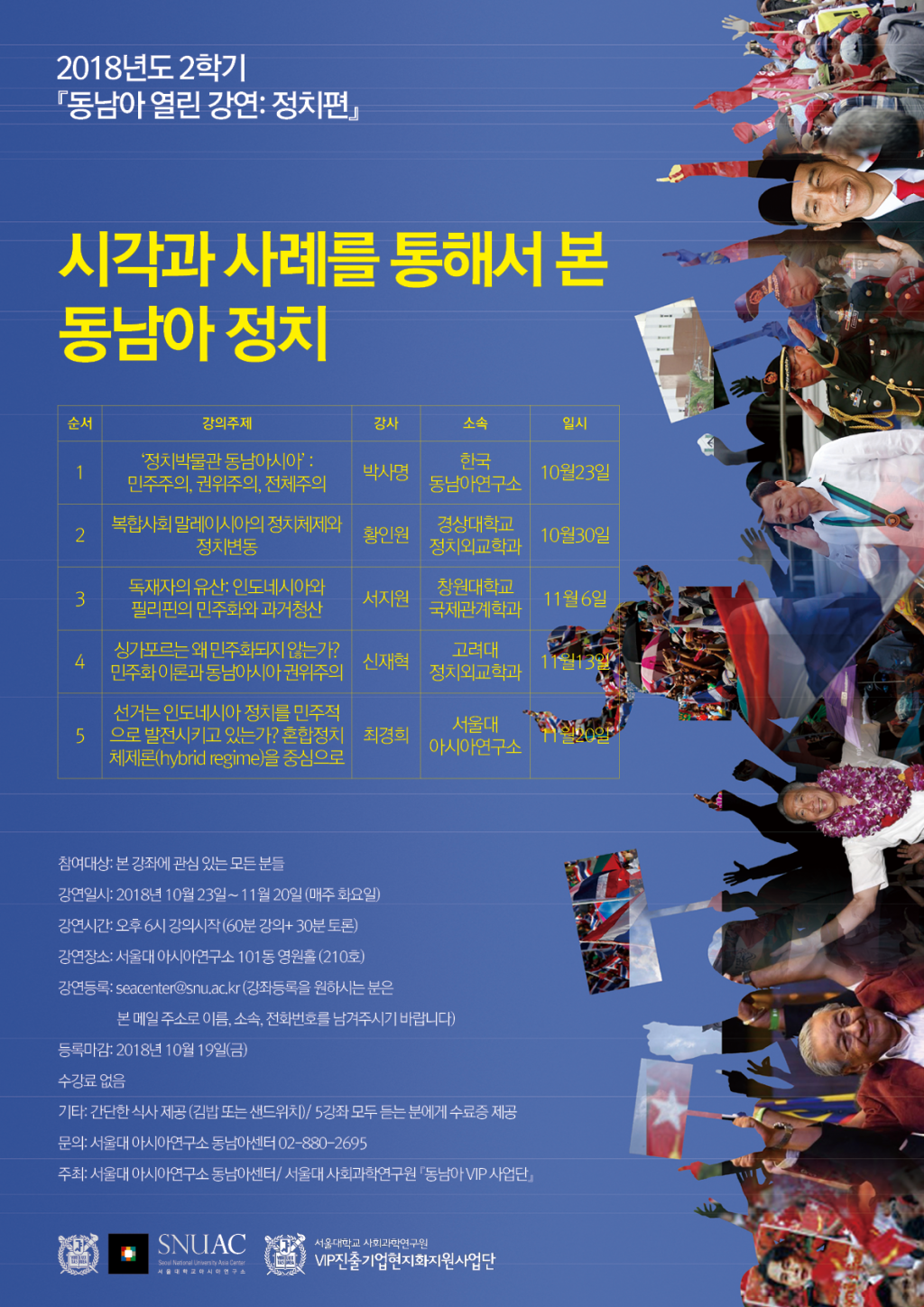
[2018 FALL] Open Lecture on Southeast Asia: Reading Southeast Asian Politics through Cases and Perspectives
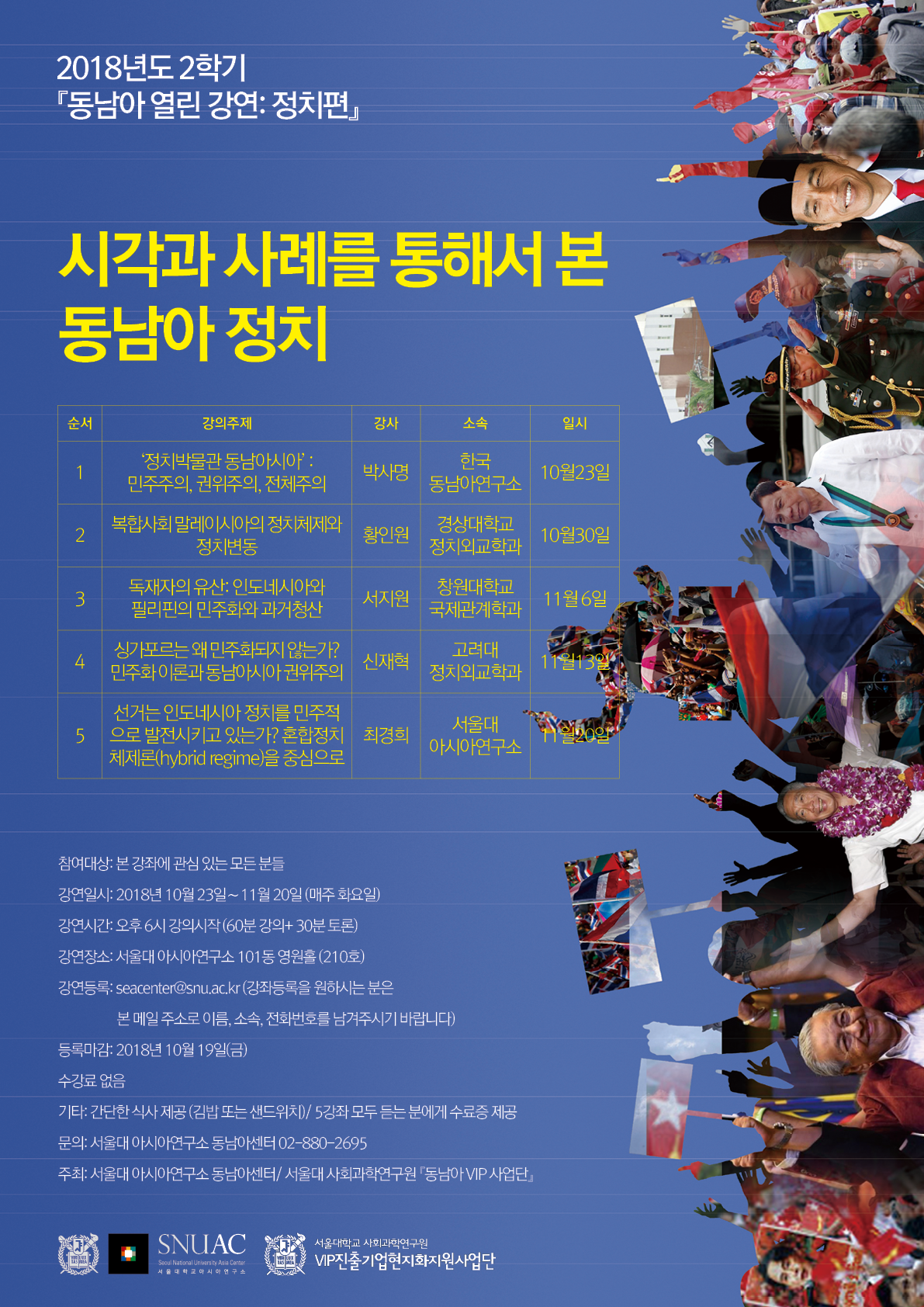
Special Lecture
OPEN TO ALL WHO ARE INTERESTED IN THE TOPIC (free public lecture)
- Dates: Tuesdays, 23 October ~ 20 November, 2018, 18:00- (60 min lecture + 30 min discussion)
- Venue: Yeongwon Hall(#210), SNUAC(Bldg#101)
- Organizer: SNUAC Southeast Asia Center / Research Team for VIP Emerging Economies(Southeast Asian Region), SNU Center for Social Sciences
- RSVP: seacenter@snu.ac.kr (Please email your Name, Affiliation, and Phone number by Friday, 19 October)
- Inquiry: +82-2-880-2695
* Light snack is provided.
* A certificate of completion will be provided to those who enroll in all five lectures.
Abstract
Politics in the Southeast Asian region is ever-changing today. Some view that the undemocratic changes in the political systems of Laos and Cambodia are due to the intensification of the Chinese influence in the Southeast Asian region. Also, Malaysia’s regime change in 61 years can be a good case to discuss on ‘the possibility of political change in Southeast Asian politics.’ Philippines President Duterte’s method of entrance was not agreeable, nevertheless, it can be viewed as aspects of strong leadership that addresses the socio-structural problems in the Philippines. Moreover, questions are rising regarding Indonesia, the new icon of democracy in Southeast Asia, whether it will manage to maintain such title in the upcoming 2019 elections. Five speakers are invited to this <Open Lecture on Southeast Asia: The Politics> based on such political circumstances in Southeast Asia today. The lectures will touch on political cases in Southeast Asian countries through diverse perspectives providing opportunities to understand the Southeast Asian politics.
Review
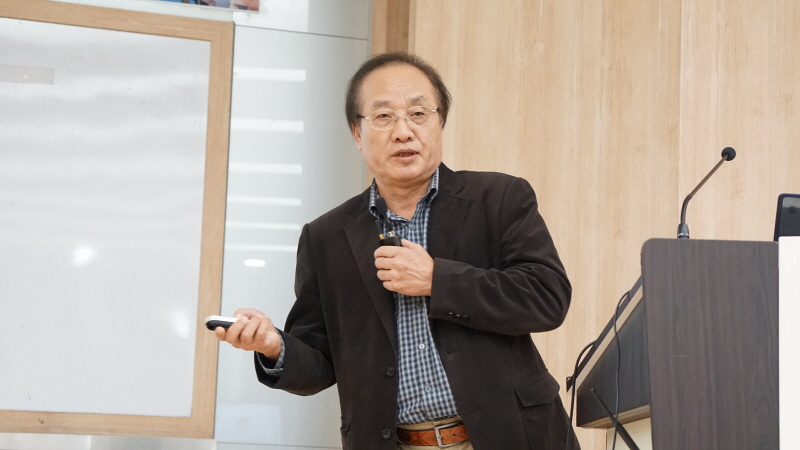
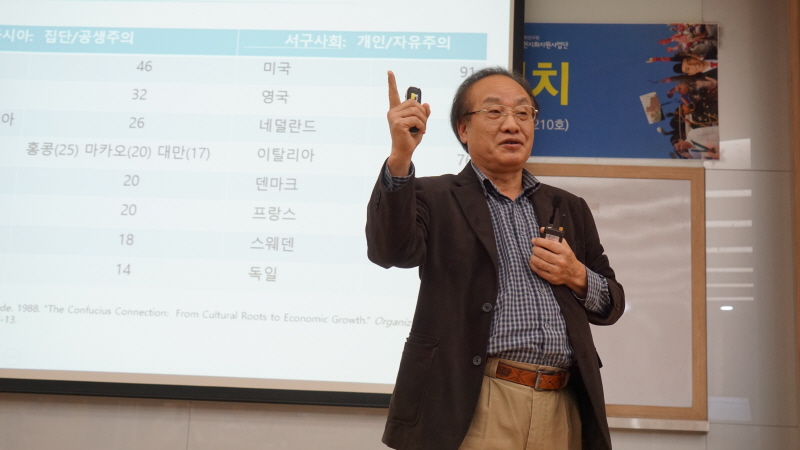
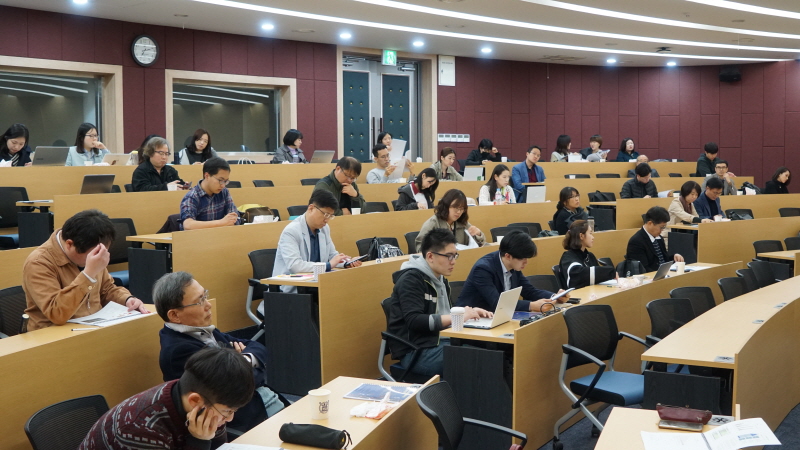
[Tuesday, October 23, 2018]
1. ‘Southeast Asia as Museum of Politics’ : Democracy, Authoritarianism, Totalitarianism- Professor Samyeong Park (Korean Ins’t of Southeast Asian Studies)
The <Open Lecture on Southeast Asia> organized by the SNUAC Southeast Asia Center has begun its series of lectures with a lecture titled ‘Southeast Asia as Museum of Politics.’ Professor Samyeong Park from the Korean Institute of Southeast Asian Studies started his lecture by emphasizing that Southeast Asia is truly a museum of politics. The general idea of totalitarianism and the resulting social phenomena, along with the political systems of Southeast Asian countries that are composed of diverse ethnicities and their transformation were examined. Professor Samyeong Park then explained that Southeast Asian countries encompass ‘diversity’ in most assorted aspects including politics, economy, social, cultural, and etc. and countries with history of colonization as well as the ensuing complications involving clash of different ethnic groups are currently experiencing difficulties in advancing their own democracy. There is much attention towards to what extent ASEAN that has commenced with the goal to integrate will influence the future of the complex Southeast Asian community.
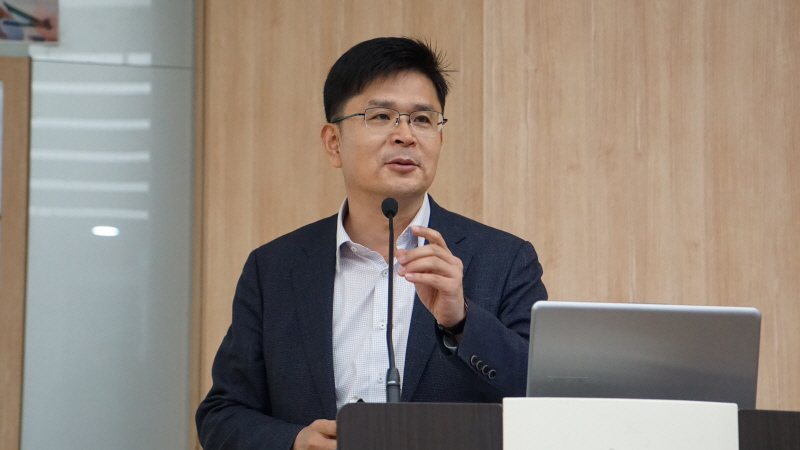
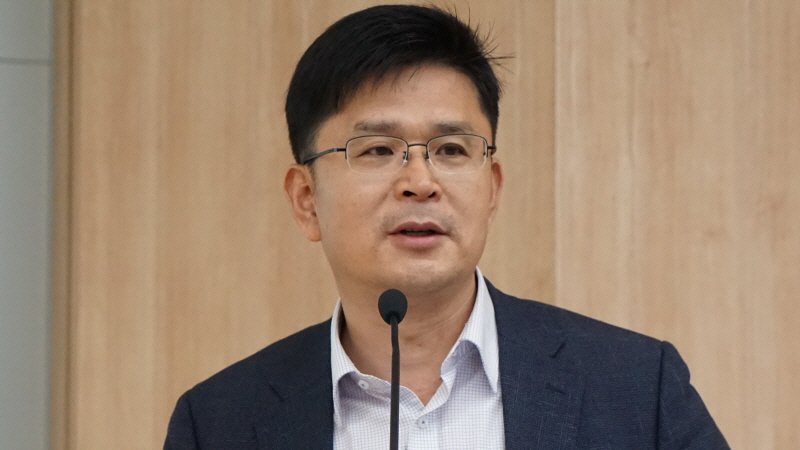
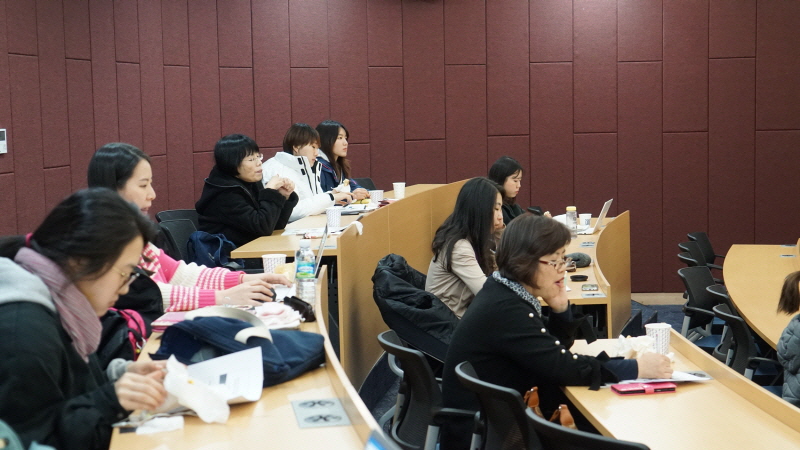
[Tuesday, October 30, 2018]
2. Political System and Political Change in Malaysia: A Complex Society– Professor In-won Hwang (Dept. of Political Science, Gyeongsang Nat’l Univ.)
The second country of the <Open Lecture on Southeast Asia> series that take a closer look at ‘politics’ in Southeast Asian countries was ‘Malaysia.’ In this lecture, Professor In-won Hwang from Gyeongsang National University examined recent events embodying political significance in order to explain the general political context of Malaysia. Malaysia’s quintessentially complex society is comprised of Malay, Chinese-descent, and Indian-descent ethnic groups. Mainly, ethnicity serves as a basis for political parties. Malaysia displays sharp conflict of political gains because such society is established on a divisive and conflicting framework, but nevertheless present a dilemma where there seems to be a high-level of political stability demonstrating an intensified type of system of consociational democracy that is based on grand coalition and authoritarian governance. Based on the above political characteristic, Professor Hwang began with exploring the political trend of past Malaysian prime ministers after the 1969 Sino-Malay sectarian violence and then went onto examine the political changes after the reformation, changes in the political orientation of the Malay voters, activation of civil societies, and the appearance of alternative media.
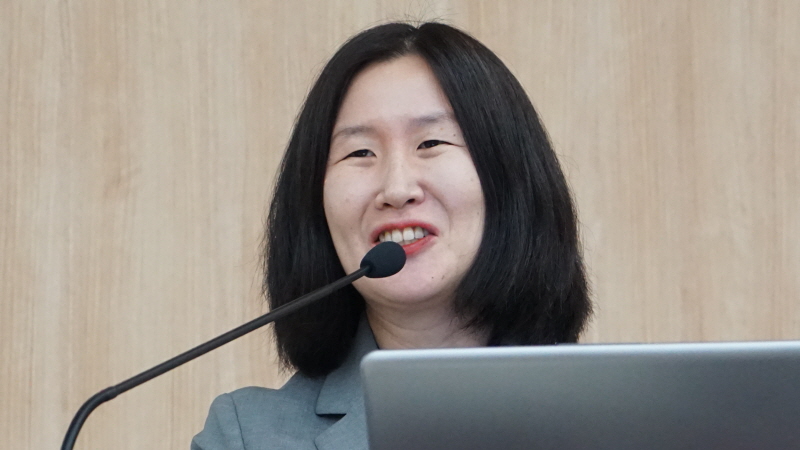
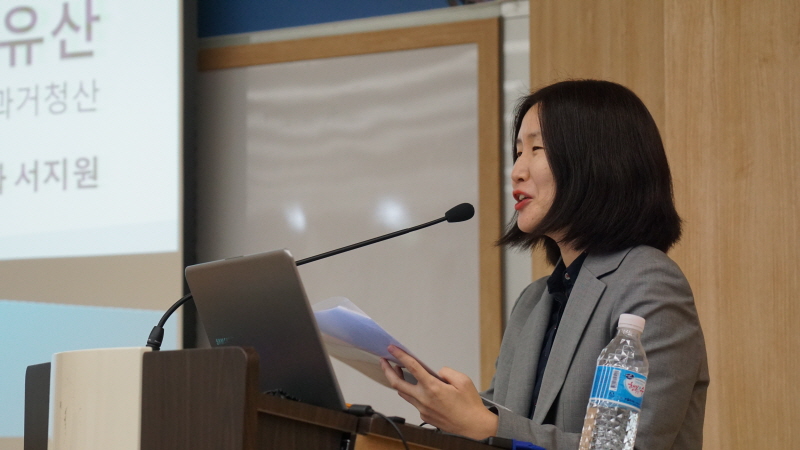
[Tuesday, November 6, 2018]
3. A Dictator’s Legacy: Democratization and Historical Rectification in Indonesia and the Philippines- Professor Jiwon Seo (Dept. of Int’l Relations, Changwon Nat’l Univ.)
The third lecture of the <Open Lecture on Southeast Asia> series examined the dictators in Indonesia and the Philippines and the rectification activities that followed the democratization since the fall of the dictatorship regime. The life stories of the Indonesian dictator Soeharto and the Filipino dictator Ferdinand E. Marcos as well as their basis for dictatorship were compared. The rectification movement began within the Indonesian and Philippines societies regarding the aftermath of the dictatorial government including corruption and misappropriation. Movements for democracy such as the People Power Revolution of 1986 in the Philippines demonstrate Filipino society’s first steps toward democracy. Nevertheless, the indictments of crony capitalism, the monopolization of the capitalistic achievements by the acquaintances of the dictators, leaves much to think about for scholars studying Southeast Asia.
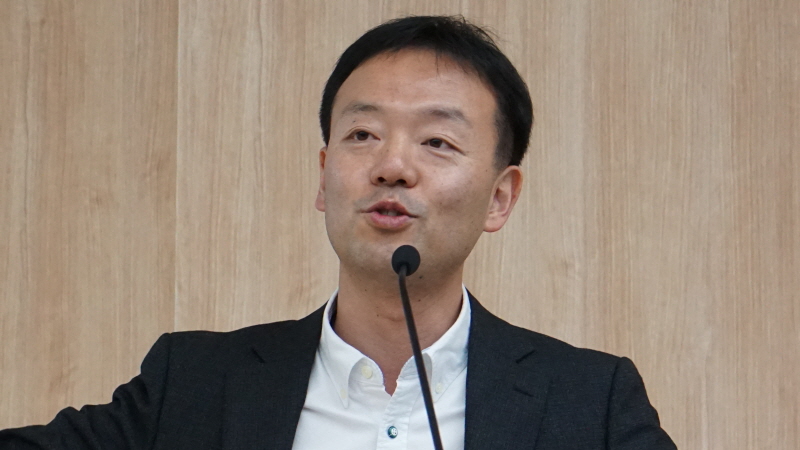
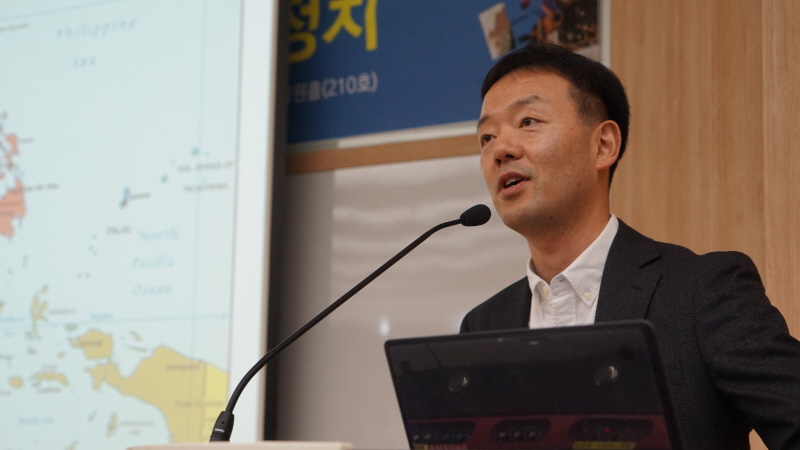
[Tuesday, November 13, 2018]
4. Why Can’t Singapore Be Democratized? Democratization Theory and Southeast Asian Authoritarianism-Professor Jaehyuk Shin (Dept. of Political Science & Int’l Relations, Korea Univ.)
The fourth lecture of the <Open Lecture on Southeast Asia> series began with the question ‘Why can’t Singapore be democratized?’ Singapore has been colonized by the United Kingdom in the past and the first governmental authority was established during this period. There was a brief Japanese occupation period thereafter followed by Singapore joining the Federation of Malaya and then it gained independence as the Republic of Singapore with Lee Kuan Yew as the prime minister. Singapore is comprised of Chinese descent, Malay descent, and Indian descent and there is a conflict between the Malays, the indigenous people, and other ethnic groups where the Malays are preferentially treated through governmental policies. Such conflict culminated in the 1964 race riots in Singapore. Professor Shin explained that the main impediment of democratization of Singapore are the dominating mechanisms including governmental control over media and suppression of the opposition party which can be found in Singapore where Prime Minister Lee Kuan Yew and his house have been ruling for many years.
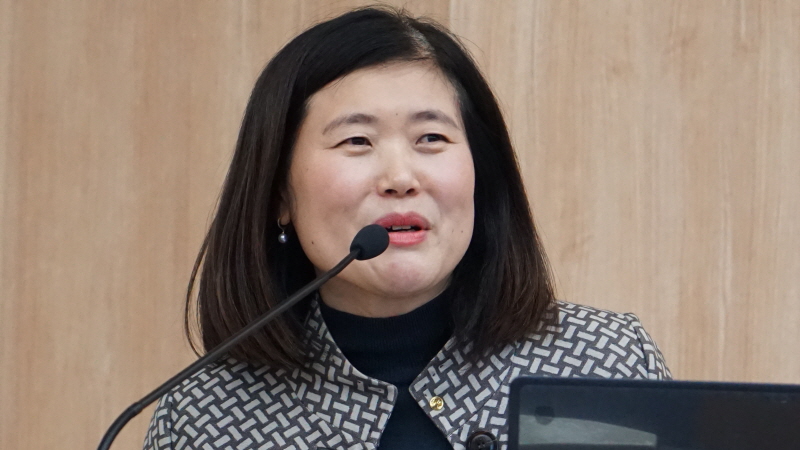
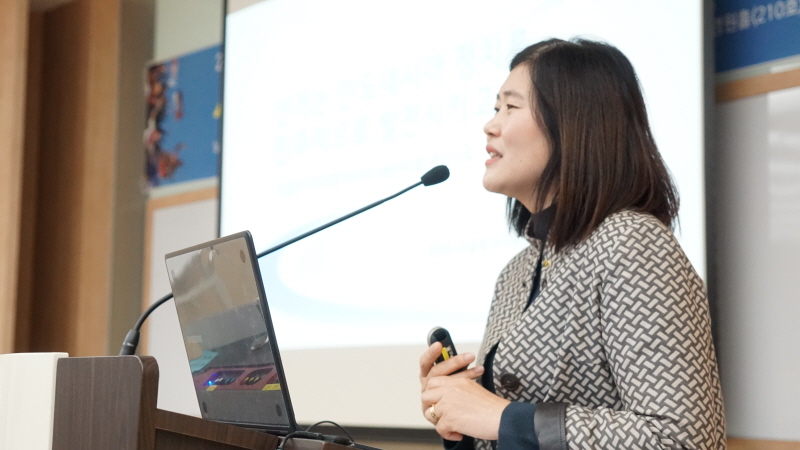
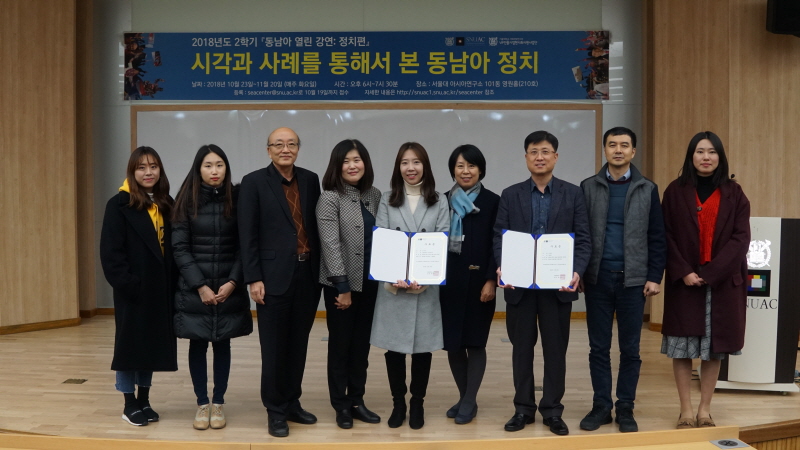
[Tuesday, November 20, 2018]
5. Is Election Advancing Indonesian Politics towards Democracy? Based on Hybrid Regime Theory-Dr. Kyunghee Choi (SNUAC)
The last lecture of the <Open Lecture on Southeast Asia> series began with the topic on ‘Democracy in Indonesia.’ Indonesia is evaluated as relatively progressing towards developed democracy compared to other Southeast Asian countries. Dr. Kyunghee Choi from SNUAC pointed out that such advancement was possible due to many factors including Indonesian political system that depends on countenance and choice, cultural factors, and its largest economy in Southeast Asia. Based on the above context, Dr. Choi examined the issue on whether the ‘election system’, that affects the progression as well as the regression of democracy, has the potential to advance democracy in Indonesian politics and analyzed different democracy types including minimalist democracy, maximalist democracy, and oligarchic democracy. Indonesia is comprised of a variety of ethnic groups and cultures and it has been through dynamic transformations from the 1998 event to the election of the current President Joko Widodo which may also be defined as the birth of the new elites transitioning from the previously dominating elite class. Indonesia is facing one more drastic change in April 2019 where the general and presidential elections will be simultaneously held and consequently there is much attention towards the development of democracy in Indonesia.
